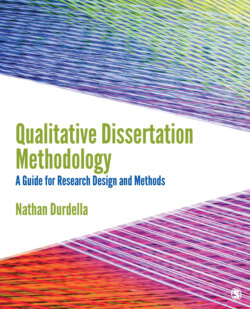Читать книгу Qualitative Dissertation Methodology - Nathan Durdella - Страница 62
На сайте Литреса книга снята с продажи.
Facilitates students’ engagement with scholars and practitioners.
ОглавлениеThe traditional dissertation has served as an indispensable mechanism to assess graduate student preparation for research work and readiness for an academic career for centuries. Integral to this experience is student–faculty interaction, particularly in dissertation advising relationships. Indeed, the assignment and role of faculty advisors generally manifests as students move through their curricular sequence in graduate education degree programs. In fact, a central argument to traditional dissertation research and writing focuses on a groupof faculty members as a committee—not just a single faculty advisor—offering students feedback and critical comments to enhance student research work product in the dissertation proposal and final dissertation study. We know that graduate student contact with faculty means something—doctoral student development and program completion can be traced to student interactions with faculty advisors (Blackwell, 1983; de Valero, 2001; Luna & Cullen, 1998; Lyons, 1990; Waldeck, Orrego, Plax, & Kearney, 1997), and the persistence of the traditional dissertation model tends to be based on the belief that these advisor–advisee experiences are essential to student learning and career preparation.
